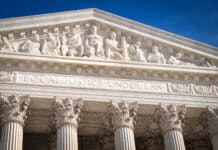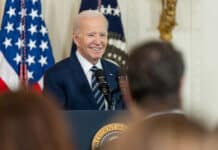
Sen. Amy Klobuchar has joined a chorus of Democrats in making a claim that one Supreme Court justice has called “very misleading.”
At a Senate Judiciary Committee hearing Wednesday, Klobuchar asked Steve Vladeck, professor at the University of Texas School of Law, what it meant for “public confidence in the [Supreme Court] when it issues decisions that are so fundamental to people’s rights, including endangering voters’ health and undermining women’s access to health care, in the middle of the night on a shadow docket.”
The Minnesota senator was referring to two emergency Supreme Court decisions. One overturned a lower court’s order that extended an absentee voting deadline by six days during the 2020 election. The other refused to interfere with Texas’ implementation of a law that banned abortion after six weeks. Both decisions were 5-4.
Although coined in 2015, the use of the term “shadow docket” has significantly increased since the 2020 election. Democratic lawmakers and commentators employ the term to mischaracterize a legitimate process as a conservative-driven abuse of power.
As a matter of fact, Justice Samuel Alito recently responded to this characterization in a lecture at the University of Notre Dame, saying that it sounds “very sinister and threatening” but in reality is “very misleading.”
“The catchy and sinister term ‘shadow docket’ has been used to portray the court as having been captured by a dangerous cabal that resorts to sneaky and improper methods to get its way,” Alito said, according to NPR. “And this portrayal feeds unprecedented efforts to intimidate the court or damage it as an independent institution.”
The actual process of the so-called “shadow docket” is a method of making decisions on emergency appeals without needing to hear oral arguments. Justice Alito said “there is nothing, absolutely nothing new” about it.
Democrats might respond by claiming that the number of emergency applications and decisions nevertheless skyrocketed under Donald Trump’s presidency. But Justice Alito dismissed this as “silly criticism.”
“The real complaint of the critics is that we have granted relief when they think it should have been denied … and denied relief when they think it should have been granted,” he said at his Notre Dame lecture.
















